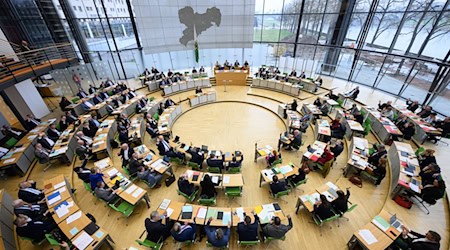Saskia Esken, the leader of the SPD, emphasized on Caren Miosga's last show that pensions in Germany are secure and remain affordable. Not even the audience believed this, which was revealed by loud laughter. "With the SPD, there will be no increase in the retirement age," she said.
But how realistic is this assurance given the current demographic and economic developments in Germany?
More honesty about pensions
The German population is ageing rapidly. Fewer and fewer people in employment have to finance the pensions for a growing number of pensioners. This imbalance is causing the pay-as-you-go system of statutory pension insurance to falter. Economists such as Joachim Ragnitz from the ifo Institute warn: "You can't have it both ways." He calls for more honesty in the pension debate and emphasizes that a high pension level and low contributions cannot be achieved at the same time.
The reality already shows the consequences of this dilemma. Almost half of all German pensioners have a monthly net income of less than €1,250. Low earners and people with interrupted employment histories are particularly affected. However, politicians seem to be shying away from necessary reforms. Proposals to raise the retirement age or link it to life expectancy are often dismissed as anti-social. But without such measures, there is a risk of further worsening poverty in old age.
A look abroad could offer possible solutions. Sweden, for example, relies on a pension system with equity funds and automatic adjustments. Experts recommend taking a closer look at this model in order to future-proof the German pension system.
It is high time to come clean with the citizens. Pensions in their current form are not secure. Without far-reaching reforms and a rethink in society, we are heading towards a social crisis that could shake the foundations of our prosperity.
CDU calls for reforms for a secure pension
The CDU has presented a proposal, the so-called AktivRente, which is intended to supplement the statutory pension insurance with a funded system. A state-managed fund would invest in global stock markets in order to generate additional returns for old-age provision. At the same time, the CDU is calling for the retirement age to be adjusted more flexibly in line with increasing life expectancy. The party argues that this is necessary to ensure that pensions can be financed in the long term. Friedrich Merz, party chairman, emphasized that without such reforms, the burden on younger generations would become unbearable. At the same time, AktivRente is intended to create new incentives for private provision in order to reduce dependence on the statutory pension. (DIA Vorsorge)
These proposals have met with mixed reactions: While supporters praise the long-term relief for the pension system, critics warn of the risks of the capital markets and potential social inequality.
Early-start pension: another CDU model
In addition to the AktivRente, the CDU is also bringing the Frühstart-Rente model into play. This concept provides for employees to pay into the pension insurance scheme earlier in order to enable a longer savings period. The aim is to make it easier for people to build up a solid pension entitlement at the start of their working life. Trainees and career starters in particular should benefit from this approach, as early payment will generate more capital for the pension fund. (DIA Vorsorge)
The early-start pension is seen as a way of keeping pension levels stable in the future and giving younger generations more planning security. However, critics complain that the financial scope of many career starters is limited and the model is therefore not practical for everyone. Nevertheless, the proposal shows that the CDU is trying to develop new approaches to strengthen old-age provision.
Tax-free additional income for pensioners: more flexibility in old age
Another concept currently being discussed is the introduction of tax-free additional income for pensioners of up to 2,000 euros per month. The aim of this measure is to give older people the opportunity to supplement their income through employment without these additional earnings being subject to tax. This would not only improve the financial situation of many pensioners, but would also relieve the economy as more experienced workers would remain on the labour market.
Supporters emphasize that this model could both strengthen the purchasing power of pensioners and alleviate the shortage of skilled workers. Critics, on the other hand, see the danger that this will become necessary, especially for pensioners who are dependent on additional income to make ends meet. Nevertheless, the tax-free additional income could represent a win-win situation for pensioners and society.










